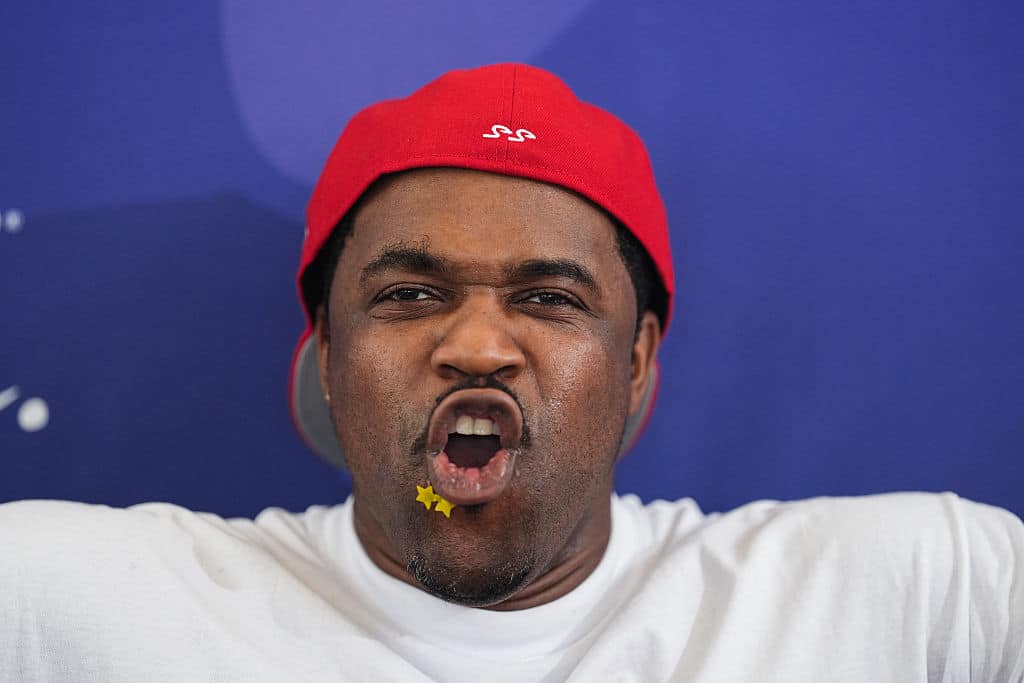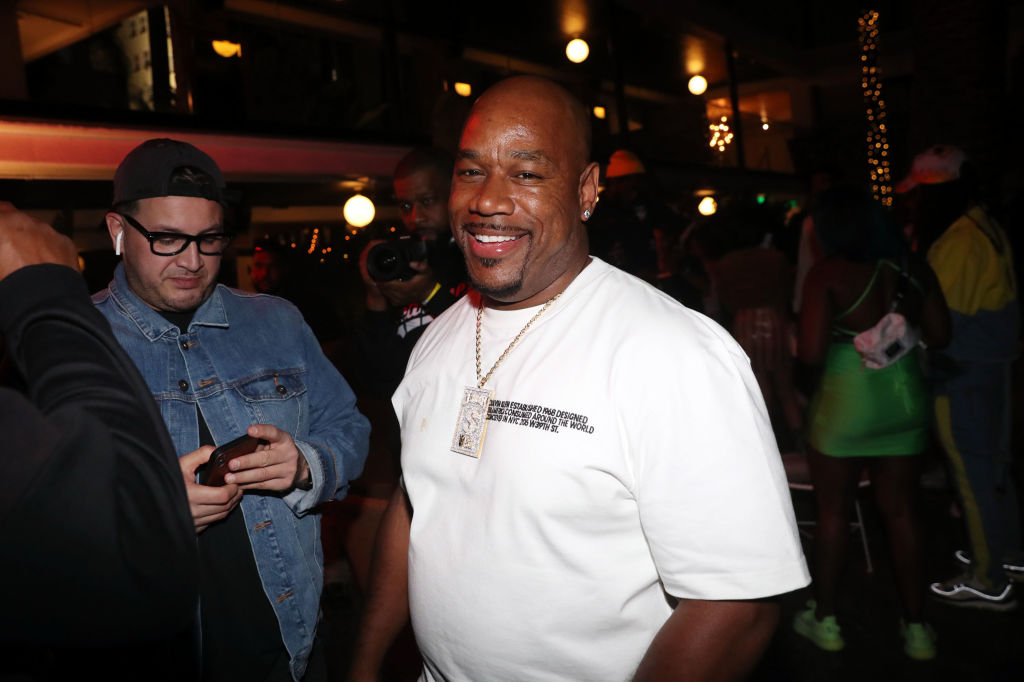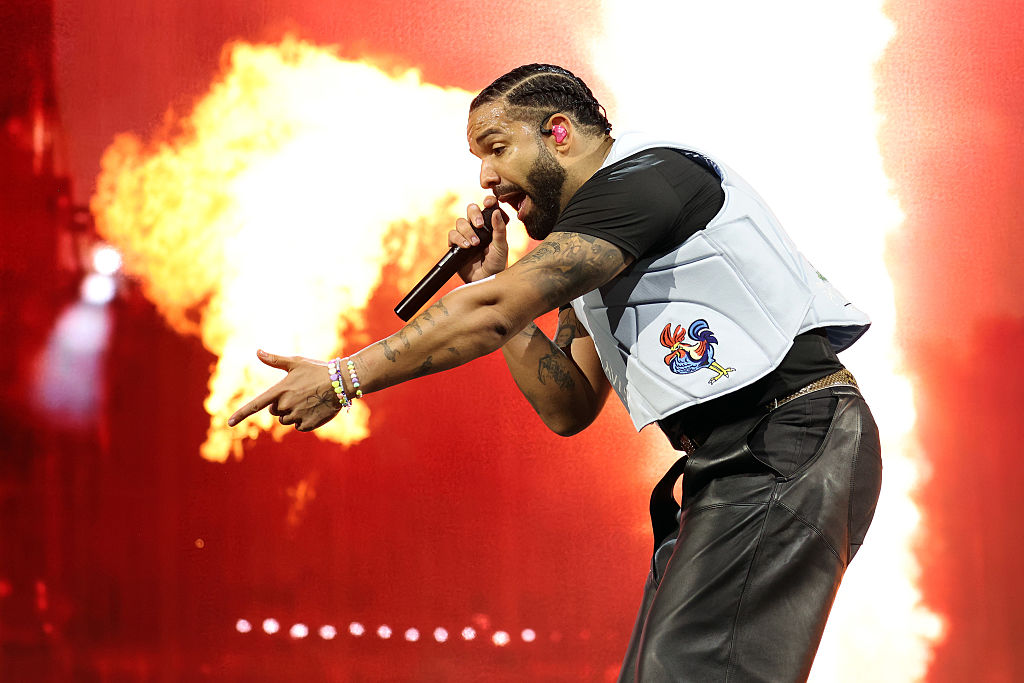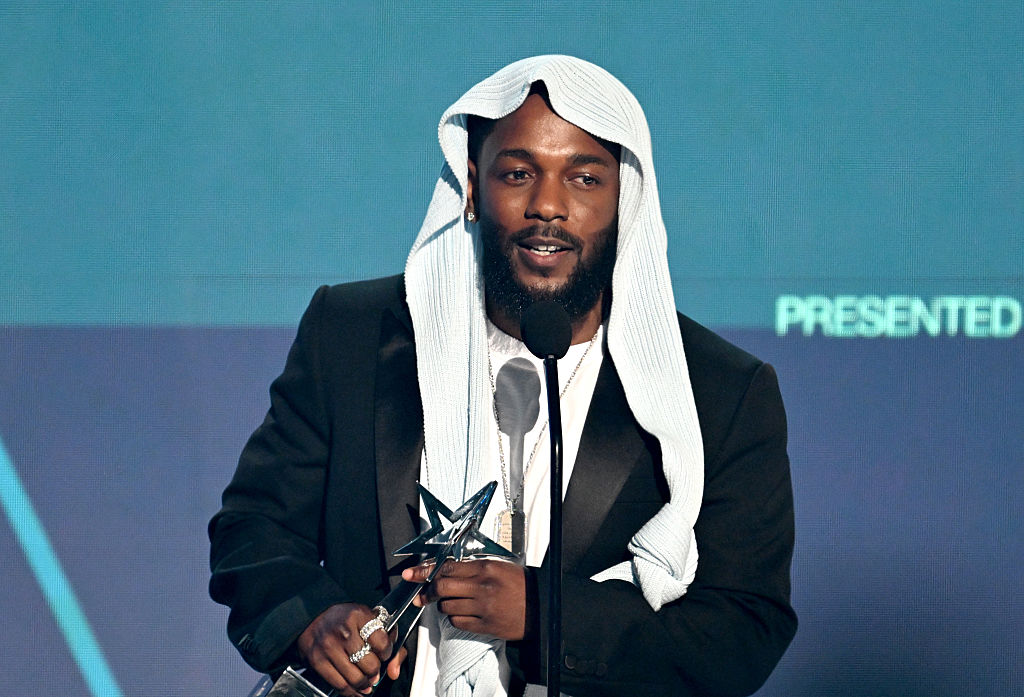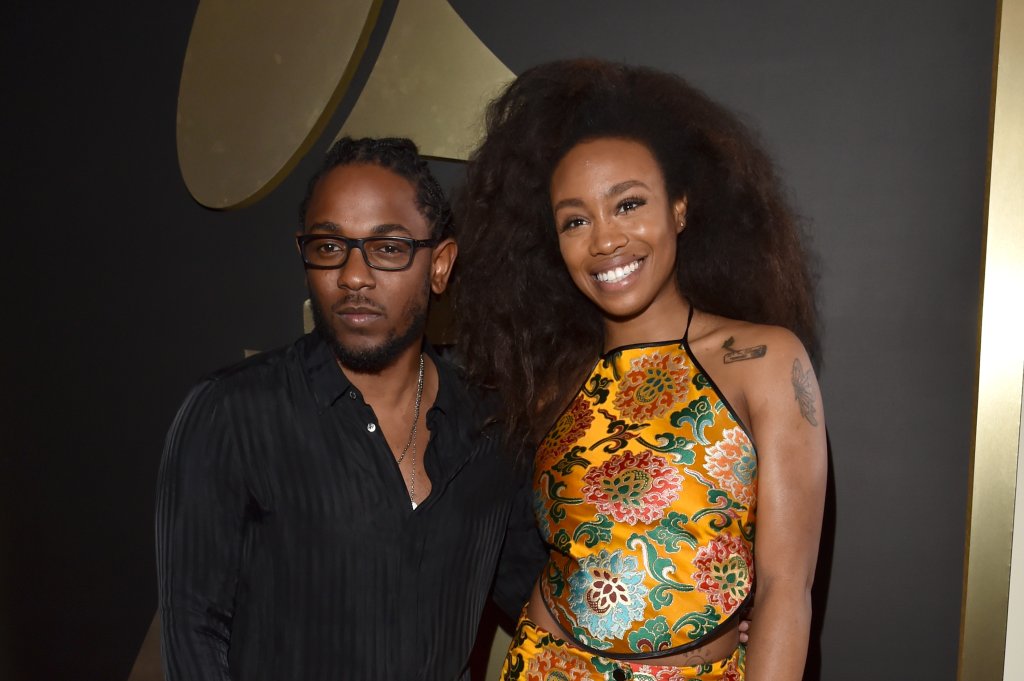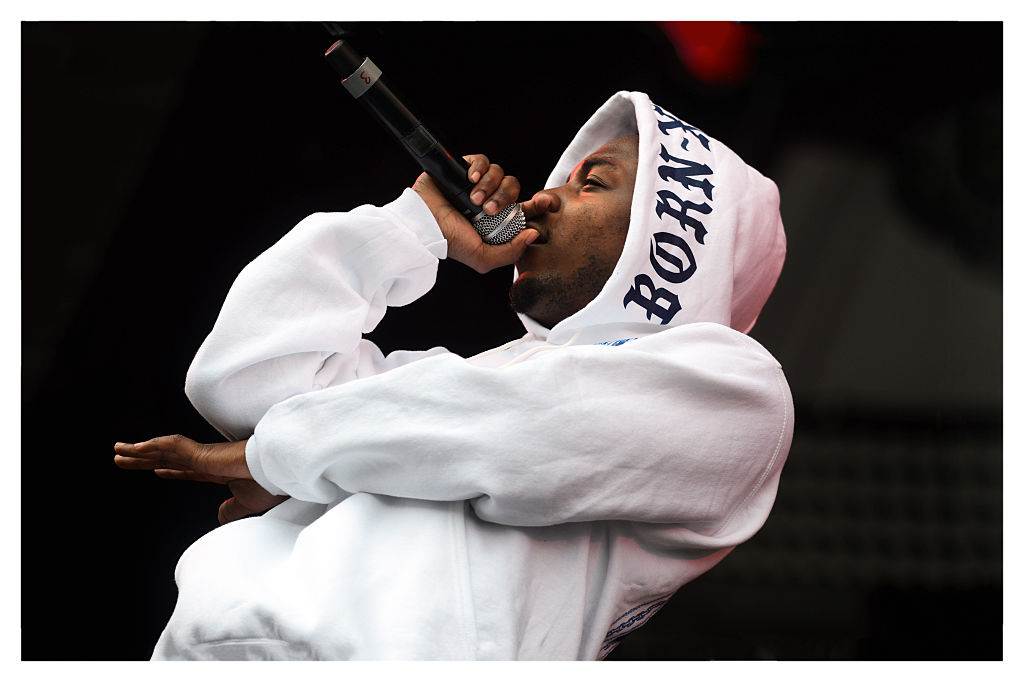kendrick lamar
Source: John Nacion / Getty
A$AP Ferg shows the Hip-Hop game a level of empathy that deserves to be studied.
In a recent interview, he kept it real about the A$AP Mob and Kendrick Lamar’s relationships with Drake. Let’s take it back to 2012; the Canadian rapper was coming off the success of his fan-favorite album, Take Care. Kendrick Lamar was picking up steam with Section.80. You heard right, Kenny hadn’t even blessed the world with good kid, m.A.A.d city. Meanwhile, A$AP Rocky had just dropped his debut project, LIVE.LOVE.A$AP.
Drizzy already had a head start in the game, signing to Lil Wayne as the Young Money prince. So when tour time came, he chose to bring both Rocky and Lamar with him.
Years later, on “4pm in Calabasas,” he revealed that decision-makers around him didn’t want him to bring them as supporting acts. Drake still went with his gut: “When they told me take an R&B n*gga on the road and I told ‘em no and drew for Kendrick and Rocky. I tried to make the right choices with the world watching.”
Love Hip-Hop Wired? Get more! Join the Hip-Hop Wired Newsletter
We care about your data. See our privacy policy.
Fast forward to today, and both the West Coast and Harlem MCs find themselves on bad terms with The Boy. After diss tracks, lawsuits, and even a Super Bowl performance, A$AP Ferg, one of the Mob’s core members, shared his perspective on all the tension.
He compared the situation to family dynamics:
“I feel like that’s kind of natural, though, because even when you think about the family dynamic, little brother, big brother things. A lot of the times, a little brother want to grow up and prove himself and not be under the wings of the big brother.”
The Plain Jane rapper also added that all three (Rocky, Kendrick, and Drake) were still becoming who they really are when they first met:
“A lot of the times, where we start is not who we really are. We’re still growing into the person we are. The K.Dot that was on the tour, or the Drake that was on tour, or the Rocky that was on tour, or the Ferg that was on tour, is not that same person. We were still learning ourselves during that time, so when you grow, you can’t expect for the relationship to be the same.”Despite the back-and-forth that’s played through the music in recent times, the Trap Lord offered a different, more human perspective on the beef.
Source: Johnny Nunez / Getty
Wack 100 recently had to stand on business after Adin Ross made some questionable comments.
The streamer made it very clear which side he was on during Drake’s beef with Kendrick Lamar. Appearing on many streams with the 6 God. During a sitdown with West Coast dot connector, Wack 100, the two traded thoughts on Kendrick and Drake. Things went left quickly when Ross accused Kenny of allegedly physically abusing his wife, Whitney Alford.
The streamer was shut down quickly, as Wack points out, he had 0 facts to back up such a wild statement. Wack also put the nail in the conversation when he told Adin, “You’re a white guy, so y’all always think black people did some sh*t.”
Kendrick and his wife reportedly stayed at a hotel in 2014, where the alleged incident took place. After the beef between Drizzy and Kenny died down, a website surfaced featuring a video of an alleged hotel employee breaking down the story. Kendrick later went on The Breakfast Club and denied that anything ever happened between him and his partner.
Wack 100 made it clear from the start of the stream that he is Team Kendrick in this beef. Even though he ties to Cash Money and Birdman (and by extension, Drake), he still stands with his West Coast bredren.
Kendrick and his team have not commented on Adin Ross’s allegations against him.
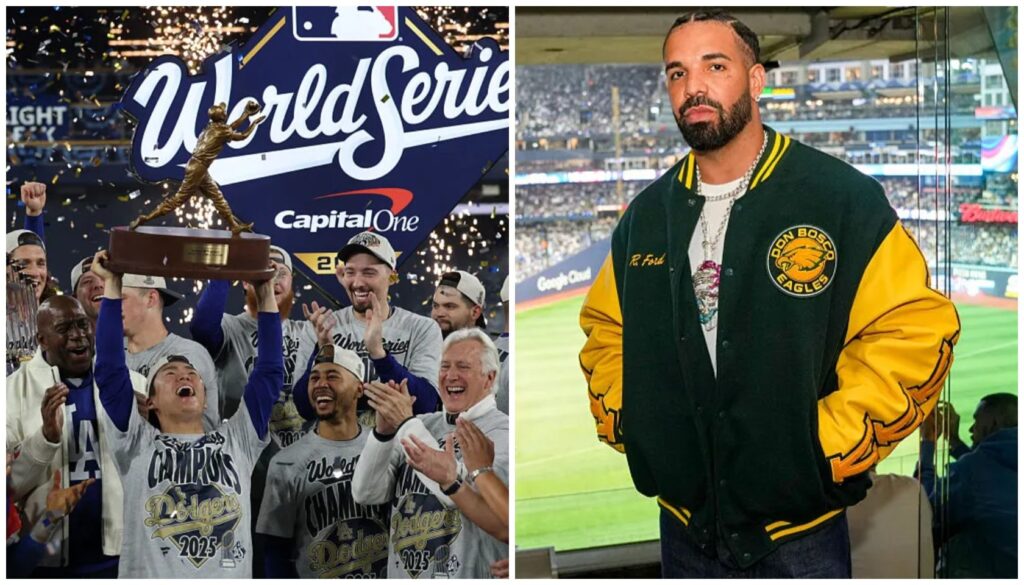
Getty Images / Los Angeles Dodgers / Drake
The Los Angeles Dodgers squeaked out a Game 7 World Series comeback victory for the ages against the Toronto Blue Jays, and somehow Drake is catching all the strays.
The Toronto Blue Jays watched the World Series title slip through their hands after leading most of the game following Bo Bichete’s impressive home run off Shohei Ohtani. Their hopes and dreams of becoming champions vanished after Will Smith crushed a hanging slider in the 11th inning, giving the Dodgers their first lead and eventual Game 7 victory.
The final out came on a double-play ball on more masterful pitching from Japanese right-hander Yoshinobu Yamamoto, who pitched in Game 7 on 0 days’ rest and was named World Series MVP.
Somehow, The Blue Jays Losing The World Series Became Drake’s Fault
After the Dodgers became the first team since the 2000 Yankees to go back-to-back, one person began catching all the strays on social media —and no, it wasn’t a member of the Blue Jays; it was none other than Drake.
The writing was on the wall: the Blue Jays lost two straight home games, and the common denominator was Drake being at both. When the final out was called and the Dodgers began celebrating on the Rogers Centre field, the trolling of Drake on social media started.
Interestingly enough, Nike, which has both Kendrick Lamar and Drake on their Nike family roster, with the latter having his own signature collection with Noctis, ran an ad congratulating the Dodgers with Lamar’s song “Squable Up” as the soundtrack.
The MLB on Fox account on social media got in on the fun, posting a photoshopped meme of Kendrick Lamar driving away in a GNX with the World Series title on the roof of the vehicle while blowing exhaust smoke on Drake with “They Not Like Us” written on the field.
The caption for the post… “DAMN.”
Of course, some fans are also attributing the loss to the dreaded Drake curse —if that’s even a thing, and it seems like it is.
Drizzy might want to stay off social media for a while. You can see more reactions below.
Drake is continuing his legal battle with UMG after the lawsuit he brought against the record label over Kendrick Lamar’s “Not Like Us” was dismissed earlier in the month. Filing an appeal this week, Drake aims to get the judge to reinstate the lawsuit, which alleges UMG aided his rival in relaying what his side felt with defamatory claims out to the public, thus damaging his brand.
Music Business Worldwide reports that Drake filed a Notice of Appeal on Wednesday (October 29) in a countering stance against Judge Jeannette Vargas’ October 9 dismissal of the lawsuit. The Canadian superstar alleges that UMG intentionally promoted Lamar’s blistering “Not Like Us” diss track, writing in the complaint that the label pushed the song’s popularity “while knowing that the song’s insinuations that he has sexual relations with minors were false and defamatory.”
Judge Vargas ruled that Lamar’s lyrics, despite the OVO honcho’s insinuation that they were meant to defame him, were essentially stated opinions that were protected instead of facts. Further, the judge said that the case should be examined in full as both gentlemen verbally sparred across with several lines and songs between them.
The filing for appeal is the start of the process, with a full appellate brief filing happening at a later date. There are no new developments as the notice was just filed a day ago, and it will take months for things to move ahead.
—
Photo: Getty
Source: Paras Griffin / Getty
Kendrick Lamar has been on a long winning streak.
When the West Coast MC decided to step out of the frame and diss Drake on Metro Boomin’s “Like That” track, it shifted the whole industry. People started choosing sides; some stood on business, some folded. The back and forth between the two rappers was unanimously ended by Kenny’s knockout punch with “Not Like Us”. Dropping it literally within hours of the Canadian rappers’ diss.
Fans didn’t even get the chance to digest Drizzy’s response due to the impact of “Not Like Us” & most importantly, the context within the record. Since then, Kendrick has been on a streak, performing the song at the Super Bowl, as well as seeing it climb the charts. That streak looks like it may have slowed down. According to Kurrco, Kendrick no longer has any songs on the Billboard Hot 100 and has left the chart for the first time since March 2024.
Not only was “Not Like Us” dominating the charts, but songs off his album, “GNX,” were going crazy too. The dynamic duo of Kendrick & SZA with “Luther” was the final song to leave the Hot 100. The Grand National Tour had everyone in their feels singing their hearts out to the song. With that world tour coming to an end, that may have contributed to the record falling off the charts.
Source: Lester Cohen / Getty
In a new interview with Interview Magazine, SZA opened up about how nervous she was before hitting the road with Kendrick Lamar for the Grand National Tour.
Even though she’s one of the biggest stars in music right now, she admitted she was scared people were only coming to see Kendrick. “Everybody’s going to see Kendrick,” she said. “I don’t even know if I have anything to show these people that’s exciting and new.” SZA shared that she was having “full-on panic attacks” before going on stage or walking red carpets. For years, she said she would skip events because she didn’t think anyone cared she was there.
That same fear followed her into the tour. Despite her success, she was dealing with serious self-doubt.
The truth is, fans love SZA for who she is. Her songs like “Kill Bill,” “Snooze,” and “Good Days” have topped charts and connected with millions of people. While her collabs with Kenny, ike the hit “All the Stars”, are major fan favorites, she’s more than capable of shining on her own. Her 2022 album “SOS” proved that, staying at the top of the charts for weeks.
Now that she’s gotten more comfortable being on tour with Kendrick, her mindset has shifted. “F*ck it,” she said. “I don’t have anything else to do, and I want to see where this door is going to lead.” And from the way fans are showing up and showing love, it’s clear SZA has nothing to worry about. She’s not just holding her own, she’s stealing the show.
HipHopWired Featured Video
Source: Lester Cohen / Getty
In a new interview with Interview Magazine, SZA opened up about how nervous she was before hitting the road with Kendrick Lamar for the Grand National Tour.
Even though she’s one of the biggest stars in music right now, she admitted she was scared people were only coming to see Kendrick. “Everybody’s going to see Kendrick,” she said. “I don’t even know if I have anything to show these people that’s exciting and new.” SZA shared that she was having “full-on panic attacks” before going on stage or walking red carpets. For years, she said she would skip events because she didn’t think anyone cared she was there.
That same fear followed her into the tour. Despite her success, she was dealing with serious self-doubt.
The truth is, fans love SZA for who she is. Her songs like “Kill Bill,” “Snooze,” and “Good Days” have topped charts and connected with millions of people. While her collabs with Kenny, ike the hit “All the Stars”, are major fan favorites, she’s more than capable of shining on her own. Her 2022 album “SOS” proved that, staying at the top of the charts for weeks.
Now that she’s gotten more comfortable being on tour with Kendrick, her mindset has shifted. “F*ck it,” she said. “I don’t have anything else to do, and I want to see where this door is going to lead.” And from the way fans are showing up and showing love, it’s clear SZA has nothing to worry about. She’s not just holding her own, she’s stealing the show.
HipHopWired Featured Video
Source: Lester Cohen / Getty
In a new interview with Interview Magazine, SZA opened up about how nervous she was before hitting the road with Kendrick Lamar for the Grand National Tour.
Even though she’s one of the biggest stars in music right now, she admitted she was scared people were only coming to see Kendrick. “Everybody’s going to see Kendrick,” she said. “I don’t even know if I have anything to show these people that’s exciting and new.” SZA shared that she was having “full-on panic attacks” before going on stage or walking red carpets. For years, she said she would skip events because she didn’t think anyone cared she was there.
That same fear followed her into the tour. Despite her success, she was dealing with serious self-doubt.
The truth is, fans love SZA for who she is. Her songs like “Kill Bill,” “Snooze,” and “Good Days” have topped charts and connected with millions of people. While her collabs with Kenny, ike the hit “All the Stars”, are major fan favorites, she’s more than capable of shining on her own. Her 2022 album “SOS” proved that, staying at the top of the charts for weeks.
Now that she’s gotten more comfortable being on tour with Kendrick, her mindset has shifted. “F*ck it,” she said. “I don’t have anything else to do, and I want to see where this door is going to lead.” And from the way fans are showing up and showing love, it’s clear SZA has nothing to worry about. She’s not just holding her own, she’s stealing the show.
HipHopWired Featured Video
Source: Goedefroit Music / Getty
If we’ve learned one thing about Kendrick Lamar over the last year and change it’s that he ain’t never scared when it comes to his drama with Drizzy, so when the man took his and SZA’s Grand National Tour to Drake’s hometown of Toronto, Canada, y’all knew he wasn’t going to play it humble.
Last night (June 12), social media was abuzz with videos of Kendrick Lamar performing at the Rogers Centre in Toronto (a place that even Drake has never performed at) interestingly enough, the crowd went wild when K. Dot performed his now classic diss track “Not Like Us.” While we all know it’s one of the most popular songs to have ever hit the Hip-Hop scene, many thought that Drake’s hometown would’ve been lukewarm to Kendrick Lamar performing his biggest hit to date, but instead, we saw a crowd seemingly rejoice and join in on the festivities as Kung-Fu Kenny once again went for Drake’s jugular on stage in his hometown.
The crowd was in such a frenzy over the performance that they actually started to chant “One more time!” in hopes of getting Kendrick to perform “Not Like Us,” one more time.
Yeah, we’re sure Drizzy wasn’t too happy to see his constituents side with his rap rival to this extent. He might cancel OVO Fest 2025 over this or something.
Still, the man does have his hardcore loyalists who parked themselves outside of the Rogers Centre and took issue with Kendrick Lamar performing and proclaimed Drake the King of the North even though their fellow countrymen were inside the venue egging on Kendrick’s unrelenting slaughter of their hometown hero.
Drake’s about to bless everyone there with exclusive OVO merchandise or something.
What do y’all think about Kendrick Lamar performing “Not Like Us” in Drake’s hometown of Toronto? Fair or foul? Let us know in the comments section below.
HipHopWired Featured Video
Source: YouTube / Youtube
DJ Akademiks recently shared a story about something that happened at Kendrick Lamar and SZA’s “The Pop Out Ken & Friends” concert in Detroit.
According to Akademiks, he ran into Dave Free, who’s a close friend and business partner of Kendrick Lamar. During their brief conversation, Dave Free allegedly asked him, “What are you getting from this? Is Drake paying you?”
Ak says he was shocked and offended by the question. He’s been very outspoken during the recent rap battle between Kendrick Lamar and Drake, often showing strong support for Drake. However, he calls cap and made it clear that no one is paying him to express his opinions, and that all his views are his own. “That was the most insulting thing,” Akademiks said after the event, explaining how upset he was by the idea that he could be on Drake’s payroll.
The drama between Kendrick and Drake was intense, and it’s brought a lot of personal stuff into the spotlight. In one of Drake’s diss tracks, “Family Matters,” he even mentioned Dave Free by name, claiming that one of Kendrick’s kids might actually be Dave Free’s. That bar caused a lot of talk online and probably added to the tension between Dave Free and Akademiks.
Even though Akademiks is known for being involved in Hip-Hop drama, this situation shows how serious things have gotten during this battle. It’s not just about music anymore, it’s about real-life relationships and reputations. Whether Dave Free was joking or being serious, Akademiks made it known that he doesn’t take kindly to anyone questioning his honesty. He wants people to understand that his support for Drake isn’t because of money, but because that’s what he truly thinks.
This moment is just another example of how intense and personal the Kendrick vs. Drake feud has become, extending beyond the music and drawing other prominent names in Hip-Hop into the mix.
HipHopWired Featured Video

 State Champ Radio
State Champ Radio 